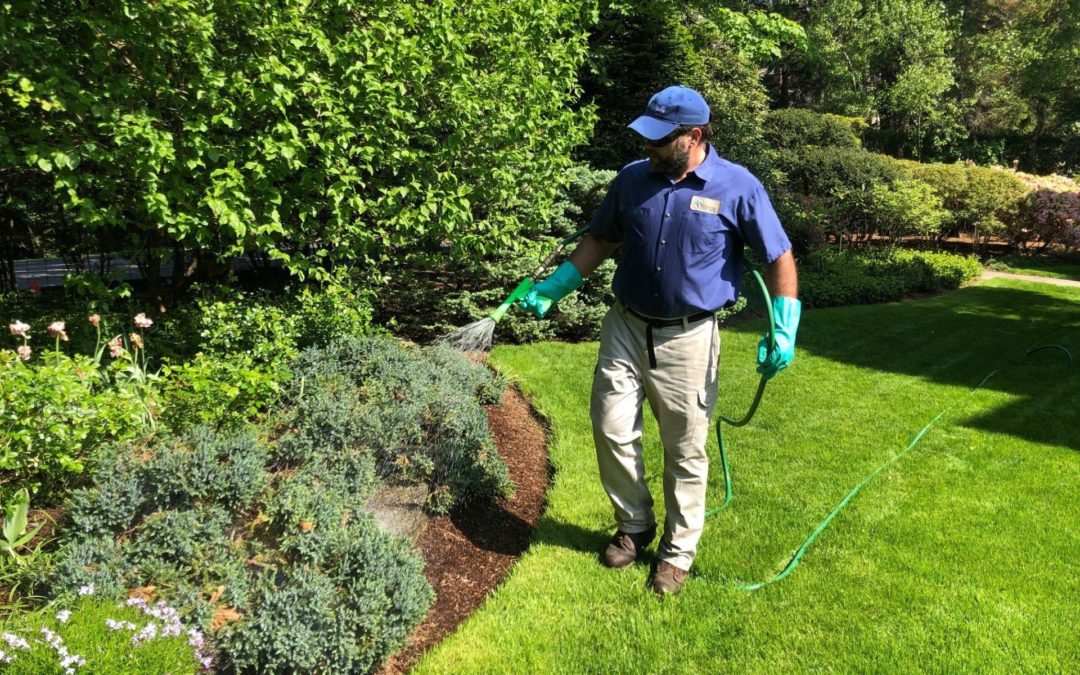It’s no secret that more and more people are becoming aware of the strain that conventional lawn care as we’ve known it has on the ecosystem. In addition to going green, people are considering whether the perfect lawn is worth the long-term environmental price we’re paying for it. If you’re planning to join the organic lawn management movement, keep reading to learn more about organic lawn care.
Test Your Soil
Before purchasing any supplies for your soil, test it. That way, you’ll be sure you’re buying something appropriate for your soil. A soil test will determine the precise nutrients and minerals your soil needs.
Start Growing the Right Type of Grass
Choose a type of grass that can resist certain pest and disease infestations. This will not only lessen your need to use pesticides but also reduce the need for watering your lawn and mowing. Bear in mind that lawnmowers contribute to air pollution. So, the less you have to mow your yard, the better your lawn care regimen will be for the environment.
Mow Your Lawn High
Setting the mowing height between 3 and 3.5 inches comes with several benefits. When the lawn is cut too short, it needs to speed up the growth of the leaf surface so it can survive. This forces it to use up stored food in the roots, leading to shallow roots. Taller grass will conserve water and stifle weed growth.
Water Deeply and Infrequently
If your lawn has decent roots, watering once a week for an hour should suffice. If you have shallow roots, aim to water the yard for fifteen minutes, three times a week. You can water a little more when it’s sweltering outside. If you have good roots, the grass that naturally goes dormant in the summer will spring back to life in the fall.
Use Organic Fertilizer
Organic fertilizers complement the biology of an organic lawn. They don’t acidify the soil or runoff. The soil will store the fertilizer until the grass needs it, resulting in sustained good health and hardiness. Rather than look for an immediate green-up, opt for organic fertilizers from a reputable garden center. Alternatively, you can create your organic fertilizer through composting.
Avoid Using Pesticides
Pesticides ultimately do more harm than good to your lawn. They may be killing beneficial microbial life that feeds on pests. Any healthy lawn should be able to support some pests. If things get out of hand, you can use natural and organic products. In most cases, reseeding the area can come in handy.
Use Grass Clippings Instead of Lawn Thatch
Lawn clippings contain precious organic matter. They also have a third of the nitrogen your lawn requires over the season. When you use clippings as mulch, they go a long way toward conserving moisture and preventing weeds from germinating. After mowing, use a rake to spread them evenly.
Provide Solutions to Bare Spots
Bare spots in your lawn can be a bit frustrating to see. Remember that grass will only fill bare areas by spreading the roots underground. Once you see bare spots, spread seeds and cover them with compost. The idea is to maintain the seeds’ moisture until they start to germinate.
Our certified lawn care specialists can assist you with this issue and help with keeping your lawn well-maintained.
Accept a Few Imperfections
An organic lawn is not going to look like a golf course all summer. Cool-season turf grass, for example, will look better in the fall and spring than in the summer, when it’s dormant.
If you’d like to learn more about organic lawn management, trust the experts at North Eastern Tree, Shrub & Lawn Care. Call us today at (888) 439-8733 to schedule an appointment and discuss your needs. We’re your trusted team for top-notch organic lawn care services in Westchester, NY.



